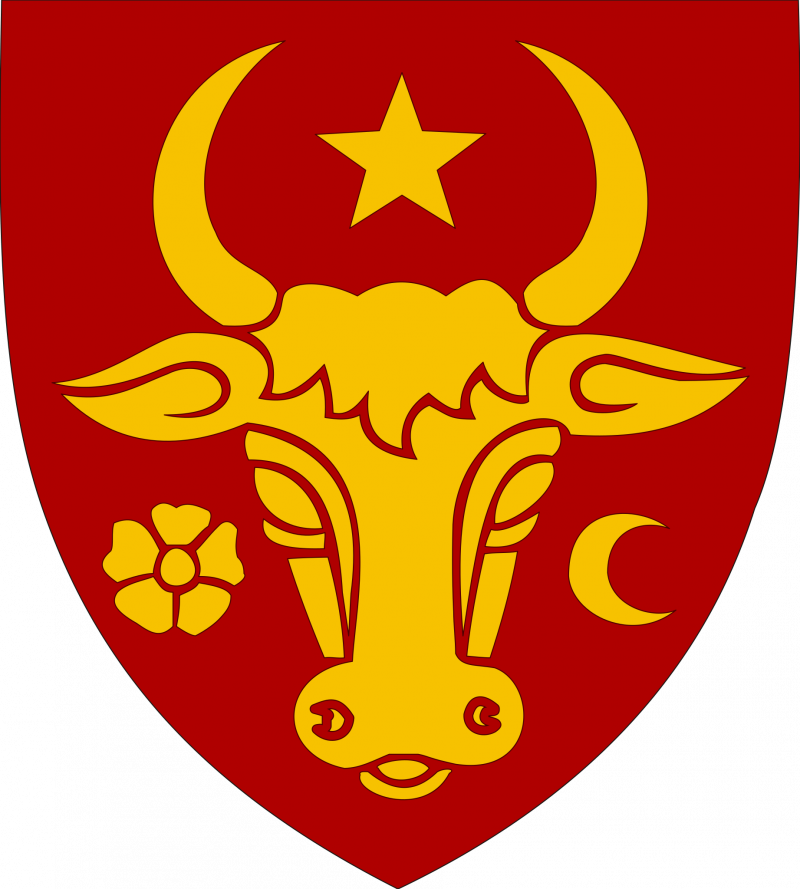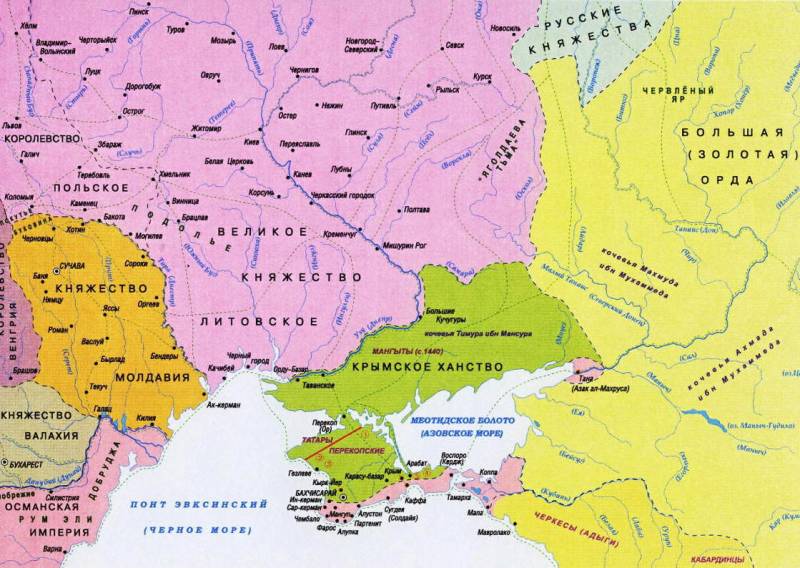Formation of the Russian vector of the foreign policy of the Moldavian Principality in the XNUMXth–XNUMXth centuries

Coat of arms of the Moldavian Principality
Moldavia arose in the first half of the 1359th century in the valley of the Moldova River as a vassal of the kingdom of Hungary, the formation of "voivodeships". In 1363 the Moldavians revolted against the Hungarian domination. This uprising was led by the governor Bogdan, who achieved the independence of his country and in 1363 took the title of "ruler" under the name Bogdan I (reigned in 1367-XNUMX).
In 1392, voivode Roman became lord under the name of Roman I (reigned in 1392-1394) and began to be titled lord of the Moldavian land "from the mountains to the sea", that is, from the Carpathians to the Black Sea coast.
The growing power of the Ottoman Empire predetermined the fate of Moldova for several centuries. In 1420, during the reign of Alexander I the Good (reigned 1400–1432) and Sultan Mehmed I Celebi (reigned 1413–1421), the first clash between the Ottomans and Moldavians took place.
The Russian principalities, being dependent on the Golden Horde, could not provide any assistance to the Moldavian principality. The Byzantine Empire itself needed support.
For some time, the Moldavians still had hope for the assistance of Western European forces, but the defeat in 1444 of the united knightly army near Varna made the subjugation of Moldavia by the Ottomans a matter of time.
Loss of sovereignty
Already in 1456, during the reign of the ruler Peter III Aron (reigned in 1451–1457, intermittently) and Sultan Mehmed II the Conqueror (reigned in 1444–1446, 1451–1481), the Moldavian principality became dependent on the Ottoman Empire and began to pay tribute to her.
For some time, the Moldavian rulers still continued to resist the Ottomans. So, in 1475, the Moldavian army led by the ruler Stephen III the Great (reigned in 1457–1504) defeated the Ottoman army led by Hadim Suleiman Pasha in the battle near the city of Vaslui, but already in the following year they were defeated in the battle of Razboeni from the army led by Sultan Mehmed II the Conqueror.
Moreover, in the campaign of 1476, the Ottomans were assisted by the Crimean Tatars, who became vassals of the Turkish Sultan in 1475, who diverted part of the Moldavian army. Stephen III's resistance continued until 1489, when he was forced to make peace with Sultan Bayezid II (reigned 1481–1512) and resume paying tribute.

Moldavian principality on the map of the Northern Black Sea region in the XNUMXth century
Hoping for help from Moscow, which had freed itself from Horde dependence in 1480, Stephen III married his daughter Elena in 1483 to the heir to the Moscow throne, Prince Ivan the Young, son of Prince Ivan III the Great (reigned 1462–1505). However, intrigues at the Moscow court and hostile relations between the Grand Duchy of Moscow and the Grand Duchy of Lithuania did not allow the hopes of the Moldavian ruler to come true.
After the defeat in 1538 of the ruler Peter IV Raresh (reigned 1527–1538, 1541–1546) in the struggle against the Ottoman Empire under Sultan Suleiman I the Legislator (reigned 1520–1566), Moldova lost the remnants of its sovereignty. At the same time, the state structure of Moldova did not undergo any changes, and the Orthodox clergy did not experience oppression from the conquerors.
However, despite the fact that the gospodars continued to rule the state, from then on they began to assert themselves on the Moldavian throne by the Turkish sultans.
The need to pay an annual tribute and the lack of sovereignty forced the Moldavian people to seek support from the European powers: at first, from the kings of the Commonwealth, despite its Catholicism, and later, as Russia strengthened, from the Muscovite tsars.
So, in 1684, the ruler Stefan Petriceicu (reigned in 1672–1684, intermittently) sent an embassy to Moscow headed by the Metropolitan of Suceava and All Moldova to negotiate the transfer of Moldova to Russian citizenship, but under the pretext of a plague epidemic, the embassy was stopped in Kyiv, from where it handed over a letter from the ruler to the kings John V and Peter I with a request for assistance to Moldavia and verbally addressed them with a request to accept Moldavia as Russian citizenship. However, in the international situation of that time, the Moldavians were given an evasive answer.
The next time, the issue of Moldovan citizenship to the Russian autocrat, also Peter I, was raised by the ruler Dmitry Cantemir (reigned in 1710-1711) in 1711.
PS
Further, see the article "Dmitry Cantemir as an ally of Peter I».
Information